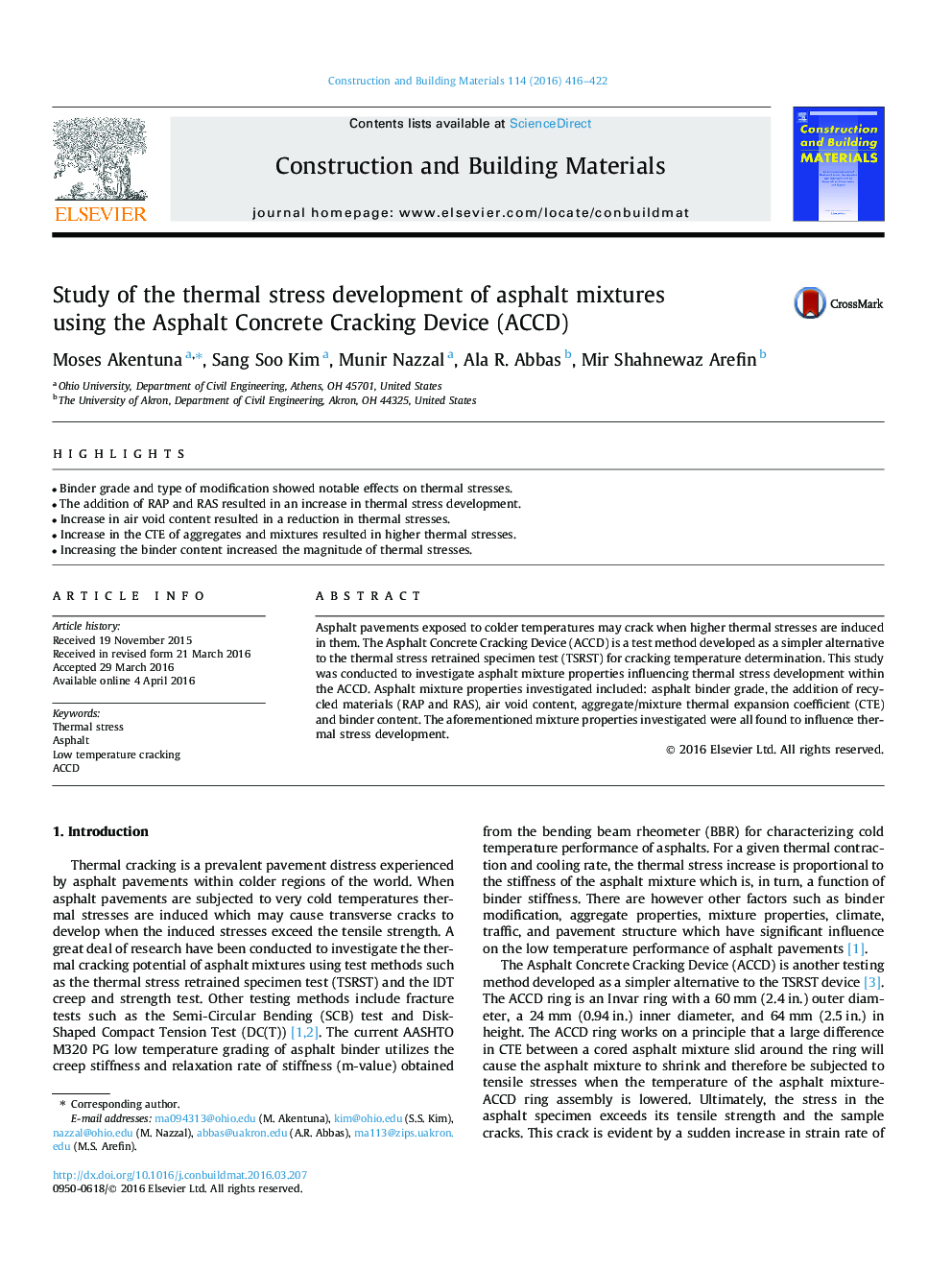| Article ID | Journal | Published Year | Pages | File Type |
|---|---|---|---|---|
| 255997 | Construction and Building Materials | 2016 | 7 Pages |
•Binder grade and type of modification showed notable effects on thermal stresses.•The addition of RAP and RAS resulted in an increase in thermal stress development.•Increase in air void content resulted in a reduction in thermal stresses.•Increase in the CTE of aggregates and mixtures resulted in higher thermal stresses.•Increasing the binder content increased the magnitude of thermal stresses.
Asphalt pavements exposed to colder temperatures may crack when higher thermal stresses are induced in them. The Asphalt Concrete Cracking Device (ACCD) is a test method developed as a simpler alternative to the thermal stress retrained specimen test (TSRST) for cracking temperature determination. This study was conducted to investigate asphalt mixture properties influencing thermal stress development within the ACCD. Asphalt mixture properties investigated included: asphalt binder grade, the addition of recycled materials (RAP and RAS), air void content, aggregate/mixture thermal expansion coefficient (CTE) and binder content. The aforementioned mixture properties investigated were all found to influence thermal stress development.
